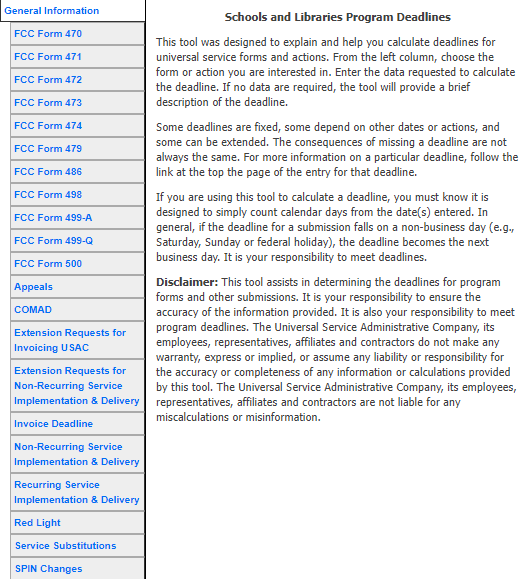Tools
- Category 2 Budget Tool: 2021-2025
(Instructions can be found on our How To Slide Decks page) - Urban/Rural Lookup Tool
- USAC Program Deadlines Tool

- FRN Status Tool
- Discount Matrix
- Data Retrieval Tool (USAC)
- E-Rate Central Quick Search (You will need your BEN)
- All USAC Tools (funding, BENS, commitments, inquiries, submit a question)
- Funding Commitment Tool: Interested in learning who and how much has been funded in North Carolina? Use the Search Commitment tool from USAC using the directions and link below.
- Navigate to the USAC website “Search Commitments” Tool (the default is the current funding year)
- Click Advanced Search
- Enter appropriate data and Search
- See attached screen shots for sample “advanced data” search